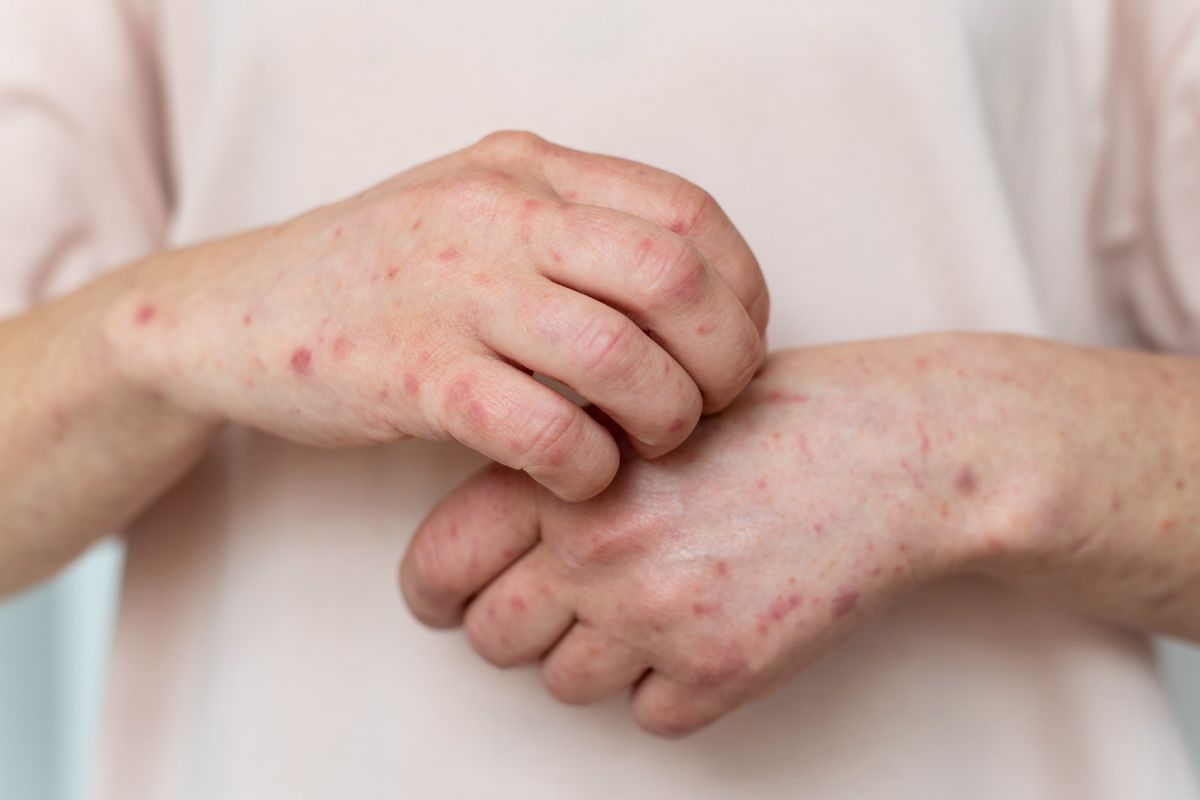Eczema (Atopic Dermatitis)
Eczema is a chronic inflammatory disorder of the skin seen more commonly in children. It involves dryness, itching and redness of the skin and may be secondary to an allergic process. In most cases the rash comes and goes in a cyclical fashion. An allergist can help identify the allergens and use medications to reduce the frequency of flair-ups. Eczema may be a warning of future allergic problems such as asthma and allergic rhinitis. Diagnosing and treating this problem early may help avert future allergy problems.

Food allergies are very common in infants and children who have eczema, which can be determined quickly with skin testing.
Symptoms
- Itchy bumps, blisters or very dry skin
- Appear as red to brownish-gray colored patches
- May "weep" or leak fluid that crusts over when scratched
- Eczema in infants often appears on the cheeks, forehead or scalp
- Eczema in children and adolescents at the bend of the elbow joint, wrists, behind the knees and behind the ears
- Might have extra crease, called a Dennie's line, across the lower eyelids.
Diagonosis
Identifying the cause of the skin irritation is essential to relieving the symptoms. An allergist / immunologist will take a complete health history and may perform aeroallergen and food skin test to diagnose allergies that could be causing symptoms.
Treatment for Atopic Dermatitis (Eczema)
- Avoid scratching or rubbing the rash. Scratching can cause bleeding, skin infections, or cause permanent damage to the skin, making thick leathery patches.
- Try applying cold compresses and creams or ointments to help relieve the itch. Keeping your skin mosturized will help restore the skin barrier. Be sure to use moisturizing ointments and creams rather than lotions.
- Avoid using soap products that contain sodium laurel sulfate.
- Avoid triggers that cause a reaction. Your allergist will help you determine what these triggers are.
- Your allergist may also prescribe medications as an allergy treatment for your eczema symptoms:
- Topical corticosteroid cream medications and topical calcineurin inhibitors are most effective in treating the rash.
- Antihistamines are often recommended to help relieve the itchiness. Oral corticosteroids are sometimes prescribed in severe cases.
- Anitbiotics may be prescribed if a skin bacterial infection is suspected as a trigger for your eczema flare-up.
Allergy , Asthma and Sinus Center | All Rights Reserved.
